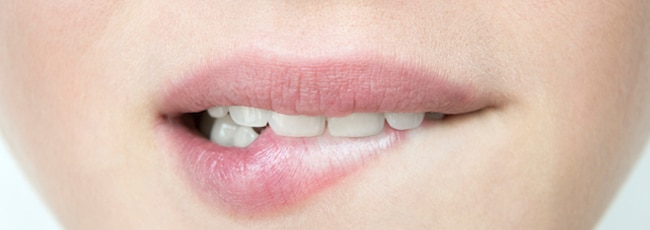Signs, Symptoms, and Solutions for Teeth Grinding

Grinding your teeth at night can do real harm to your mouth.
< Grinding and clenching can damage the teeth enamel and even l
ead to chipped, fractured or broken teeth.
Since most people grind at night when they’re sleeping, it can be hard to know for sure if you’re doing it. Here are some questions to ask to help determine if you’re damaging your teeth at night.
- Do you wake up with a sore, tight or tired jaw?
- Do you have frequent dull headaches around your temples?
- Do you teeth look worn down?
- Do others complain about hearing your teeth grind at night?
If you answer yes to any of these questions, you could be grinding at night. You may want to visit your dentist so they can inspect your mouth for damage the grinding may have already caused.
Here are some ways you can alleviate the symptoms of grinding:
- Try cutting back on alcohol and caffeine. Decreasing your intake can help reduce the severity and intensity of your grinding.
- Give your jaw a break by chewing softer foods. Avoid chewing things like gum, taffy, and non-food items like pencils.
- Eliminate your stress. Many people report that being stressed out lead to increased teeth grinding. You can try yoga, meditating, or taking a bath before bedtime.
- Wear a mouth guard. While it may take some getting used to, wearing a mouth guard at night can help protect teeth from further grinding damage.
Sources:
- http://www.webmd.com/oral-health/guide/teeth-grinding-bruxism
- http://www.huffingtonpost.com/2014/05/18/night-teeth-grinding-nocturnal-bruxism_n_5235620.html

